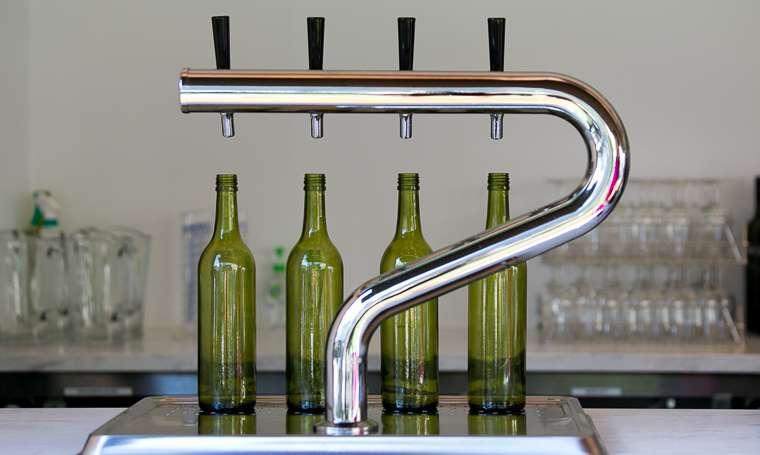Artificial intelligence boosts wine's bottom line

The Australian wine industry is turning to artificial intelligence to streamline its manufacturing.
South Australian tech firm Ailytic has developed an artificial intelligence (AI) program to significantly increase production efficiency by optimising machine use.
It uses an AI technique called 'prescriptive analytics' to account for all the variables that go into mass-producing wines such temperature, wine changeover and inventory.
The program then creates the best possible operation schedule, allowing companies to save considerable time and money.
Ailytic's list of clients includes world-renown wine companies such as Pernod Ricard, Accolade Wines and Treasury Wine Estates.
It has now included South Australian company Angove Family Winemakers as well.
Pernot Ricard Global Business Solutions Manager Pauline Paterson said AI was highly beneficial for the wine industry and helped to increase the bottom line.
"We use it mainly around production line and use it to derive the most efficient way to produce our product," she said.
"It is definitely helpful with changeover, how many bottles we need, how much wine and what order to do everything in."
Ailytic's system is able to obtain essential information from wineries using remote sensors, which are placed around machines and vineyards.
These sensors track a number of key procedures including the changeover from red to white bottling.
This includes the sub-classification of each colour such as sweet red, dry red, aromatic white and fortified wines.
Ailytic's program ensures that wine is changed quickly, without contamination, bottled using appropriate glassware, labelled and then packaged appropriately.
The sensors then transmit the data to a computer in real time using Wi-Fi.
A single pass can take anywhere between three to six hours but Ailytic's system reduces this by up to 30 per cent.
Pernod Ricard is the world's second leading wine and spirits company, with a network of grows across six countries and €8.68 billion in sales in 2015.
Its brands include Jacobs Creek, Campo Viejo, Brancott Estate, Kenwood Vineyards and Wyndham Estate.
Ailytic co-founder and CEO James Balzary said the company's AI program was perfect for the wine industry because it thrived in complex environments.
"Our algorithms work well for things like packaging, bottling, general manufacturing and sink manufacturing – the wine industry is where we are seeing a lot of appetite and the most uptake," he said.
"People think of wine as a romantic artisan type of process, and it is, when you are producing small batch, but the majority of wines we drink are mass manufactured in big operations. That's where we come in – the more complex the business, the bigger the benefit."
Ailytic's involvement in wine manufacturing has seen it nominated at the 2017 Wine Industry IMPACT Awards in Adelaide.
Ailytic's other clients are also based out of South Australia and include Australia's lone sink manufacturer Tasman Sinkware.
However, it does plan to expand its clientele and has already garnered international interest in their product.
"Even though the bigger wineries would find this more useful, even smaller operations will benefit from this," Balzary said.
"It's an affordable solution that used to only be accessible to bigger companies but we try to focus on bringing advanced capabilities to T2 and T3 manufacturers."
Provided by The Lead




















